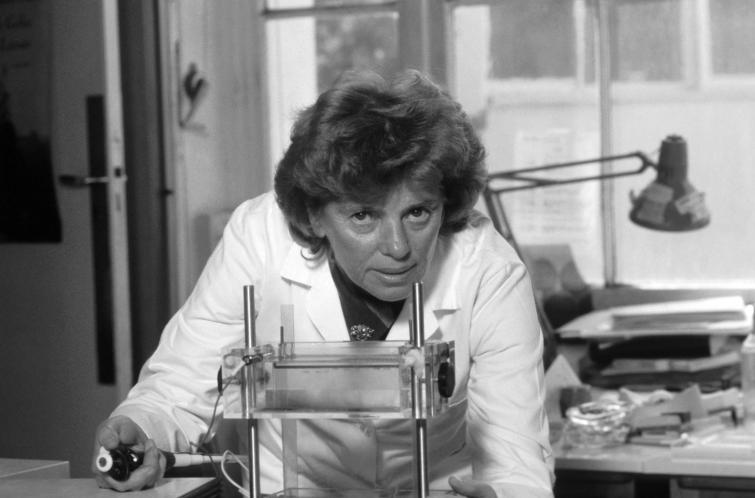
September 06, 2019
Bulletin interne de l'Institut Pasteur


Save the date: "Agnes Ullmann, a leading figure in molecular biology" – November 27, 2019
Agnes Ullmann, a Professor at the Institut Pasteur and Research Director at the CNRS, passed away on February 25, 2019 at the age of 92. The Institut Pasteur will be paying tribute to the memory of this outstanding woman, a world-renowned scientist known for her work in the field of molecular biology, with a conference on November 27 in the Émile Duclaux lecture hall.
Nearly 30 speakers from France and abroad who worked with Professor Ullmann or knew her on a personal level will discuss the importance of her scientific achievements and give short presentations that offer a glimpse of her personality.
 Agnes Ullmann was born in Transylvania. She completed her PhD at the University of Budapest, then left Hungary in dramatic circumstances to flee Soviet repression. She joined Jacques Monod's laboratory in 1958. From her early research on the mechanism of action of streptomycin with François Gros, she went on to study the lactose operon promoter and the first gene fusion identified in Escherichia coli with François Jacob and Jacques Monod, then to elucidate the allosteric properties of muscle-specific proteins and investigate the role of cyclic AMP in bacteria. In her research on the lactose system, Agnes Ullmann made a major discovery, alpha-complementation of beta-galactosidase, which revolutionized gene cloning by giving rise to the blue-white screening that has been used ever since by thousands of scientists. Her final area of research was the adenylyl cyclase toxin secreted by the whooping cough agent, Bordetella pertussis.
Agnes Ullmann was born in Transylvania. She completed her PhD at the University of Budapest, then left Hungary in dramatic circumstances to flee Soviet repression. She joined Jacques Monod's laboratory in 1958. From her early research on the mechanism of action of streptomycin with François Gros, she went on to study the lactose operon promoter and the first gene fusion identified in Escherichia coli with François Jacob and Jacques Monod, then to elucidate the allosteric properties of muscle-specific proteins and investigate the role of cyclic AMP in bacteria. In her research on the lactose system, Agnes Ullmann made a major discovery, alpha-complementation of beta-galactosidase, which revolutionized gene cloning by giving rise to the blue-white screening that has been used ever since by thousands of scientists. Her final area of research was the adenylyl cyclase toxin secreted by the whooping cough agent, Bordetella pertussis.
As well as directing the Biochemistry of Cell Regulation Unit from 1979 to 1996, Agnes Ullmann was Scientific Development Director at the Institut Pasteur from 1982 to 1995 under the leadership of Raymond Dedonder and then Maxime Schwartz. In this capacity, she promoted research applications in several fields. Her commitment in this area will be discussed during the tribute day, as will her passion for teaching and the support she gave to young scientists.
The full program for the event will be published in an upcoming issue of the newsletter.